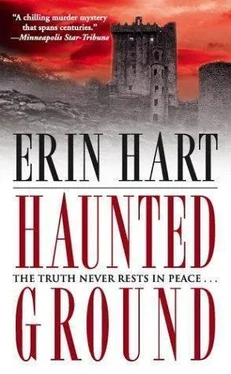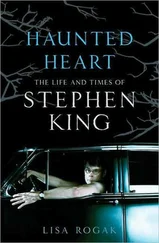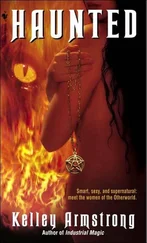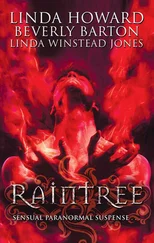“Wait a minute,” Nora said. “If Aine Mag Annaigh and the Annie McCann from Raftery’s account are the same person, then our red-haired girl was definitely married to Cathal Mor.”
“She was,” Osborne said. “Keep reading.”
Indeed the marriage had been not much favoured by his father, the maid being but a servant in their house, but I did agree to wed them secretly. But in the evil time that followed, the English soldiers drove the old Flaitheartaigh from Drumcleggan, and banished him to Iar-Connacht. The streams of Gaillmh flowed red with Irish and English blood, and wolf and carrion crow grew stout upon the flesh of murdered priests. I myself was forced to sweare an oath, to renounce the Catholic faith and all its teachings. And alas, when next I heard of young Cathal Mor it was not that he had flown to France, as I advised, but that he was took as a rebel gainst the English, and transported to Barbadoes. All this I knew when I answered thus: “Her child is but a bastard, sir, and has no father but the Lord God in Heaven.” Osborne tooke this news, whereupon he compelled me to press upon the girl the body of his own dead child, all wrapt in rags, and swear an oath it was her child had perish’d in the night. But when I did as he bade me, the girl flew into a heated rage, and bolted from the house. She began travelling the roads, clutching the lifeless infant to her breast, and pressing upon all passersby the tale of injustice wreaked upon her and her child, the lawful son of Cathal Mor O Flaitheartaigh.
To stop her tongue, Osborne next proposed in secret that the two of us should swear the wench had smothered her own bastard. A miserable, deserted creature half mad with grief, he reasond, who would credit her denial? In truth I fear I did not know the man till then. And how dared I oppose him, miserable as I was in my own wretched, damned plight? Osborne made haste to the sheriff for to report the murder, and I was to act as his witness that we two had seen the girl with her hands round the infant’s throat. I could not save her except by inviting my own destruction, and that of Hugo Osborne and his lady wife.
And so it came to be that Aine Rua Mag Annaigh was arrested and charged with her child’s foul murder, and brought before the assizes, where she was swiftly convicted and sentenced to die by the sword. Within a fortnight she was spirited to the place of execution and her head cleft from her shoulders with a single stroke. When I entreated the sheriff’s men to grant me her wretched corpse for burial, they enform’d me that her head had been took by Hugo Osborne off the block. I know not where it lies.
This secret chamber was known to me from earlier days, when I was oft hid here by old Flaitheartaigh, and much use have I made of it since in this latest fearful time. I brought her here, my fear being great that Osborne, in his wrath, would cause her corpse to be disinterred, were she buryed in any rough patch of unhallowed ground. And so within this ancient, private place, along with my forbidden priestly goods, I have entombed the remains of Aine Rua Mag Annaigh. And against her breast I have lodged the hapless infant Edmund Osborne, who drew mortal breath but for an houre.
My confessors all are dead or banished. I therefore confess to whomever shall find this writing that I am a weak and worthless man, who have been hindered by mortal fear from revealing the wicked dealings in which I have played so villainous a part. I dare not seek absolution. I can never rest, for I am haunted by the face of that flame-haired creature, bound upon her knees, and the piteous cry that leapt from her as the swordsman did his evil work. If any person ever find this document, I do heartily beg your prayers, and those of all good Catholics and Christians. I go to my grave beseeching God’s mercy upon my eternal soul. Mea culpa. Mea culpa. Mea maxima culpa.
The paper was signed Miles Gorman, and dated the twenty-fourth of May, 1654. Osborne had waited in profound stillness for them to finish deciphering the words he must have read over and over again. Nora looked up and saw him sitting in the chair across from them, waiting for a reaction with an anxious, guarded expression. “My God,” she said, “if this is true—”
“If it’s true, then the last three hundred and fifty years of my family’s history is built upon an act of judicial murder,” Osborne said. “Hugo and Sarah had no other children. That’s what all these papers are; I spent half the night digging up the whole family tree.”
“And all those portraits on the stairs—” Cormac said.
“Only the first one, Hugo, was actually an Osborne. The man they called Edmund Osborne was the son of Aine Rua and Cathal Mor O’Flaherty, if this Miles Gorman can be believed. That’s the question I keep asking myself. Why would he lie?”
A commotion of voices came from the front hall, and Aoife McGann appeared at the library door. “We’re here,” she announced, then retreated, and returned with Jeremy Osborne in tow. A profound change had come over the boy: his hair had grown out into dark curls, and his hollow cheeks had filled in. Jeremy actually looked healthy, and appeared both pleased and embarrassed by Aoife’s attention, especially in present company.
“How are you, Jeremy?” Nora asked.
He glanced at her. “All right.”
“It’s good to see you,” Cormac said. The boy’s eyes flashed as he checked to see whether the remark had been made at his expense; when he found it was genuine, he seemed at a loss to respond.
Una stood at the library door now. “As long as you’ve still got your coats on, you two, how would you like to go and get me some potatoes out of the kitchen garden? About a dozen ought to do.” Aoife seized Jeremy’s hand once more, and pulled him after her before another word was spoken.
“God, if I had only half her energy,” Una said. “Will you come down to the kitchen, so we can talk and chop at the same time?”
Una put the men on the onion and garlic detail at the table, while she and Nora took on washing some greens. “You’re going to ask me how things have been since you left,” Una said as she stood beside Nora at the sink. “It’s been hard. Hugh won’t admit it, but he still doesn’t sleep at night. Jeremy’s been doing much better, but he may need more help than we can give him. Hugh’s trying, he really is. We all are.”
“Any word about Lucy? Does he ever see her?”
“No. She’s in a special hospital unit at Portlaoise. The psychologist says it may be better for now that he not see her.”
“Aoife seems to have great time for him,” Nora said, watching the small fair head, the arms gesturing as the child both directed and assisted Jeremy, who was digging for potatoes with a spade in the raised vegetable bed outside the kitchen window.
“She’s delighted to have a playmate since Fintan’s gone away,” Una said. “And I really think Jeremy dotes on her as well. He really has come a long way. He goes to see the counselor faithfully every week. It’s going to take a long time, but I know Hugh’s right—I know there’s goodness in him.”
“It’ll get better,” Nora said, hoping her words carried the weight of conviction. “Are you still living at home? I hope you don’t mind me asking.”
“We’re still there. Brendan’s calmed down a lot since you were here. He’s realized that Fintan leaving wasn’t the end of the world, and he’s hired a young fella to help him out with the farmwork. I think it helps knowing that even if Aoife and I should leave, we wouldn’t be going far. I don’t think I could ever leave this place entirely.”
Hugh Osborne came over to set his plate of chopped garlic on the counter beside them, and stopped to give Una’s hand an affectionate squeeze before returning to the table. Nora could see that Una was both pleased and a little discomfited by this gesture.
Читать дальше











